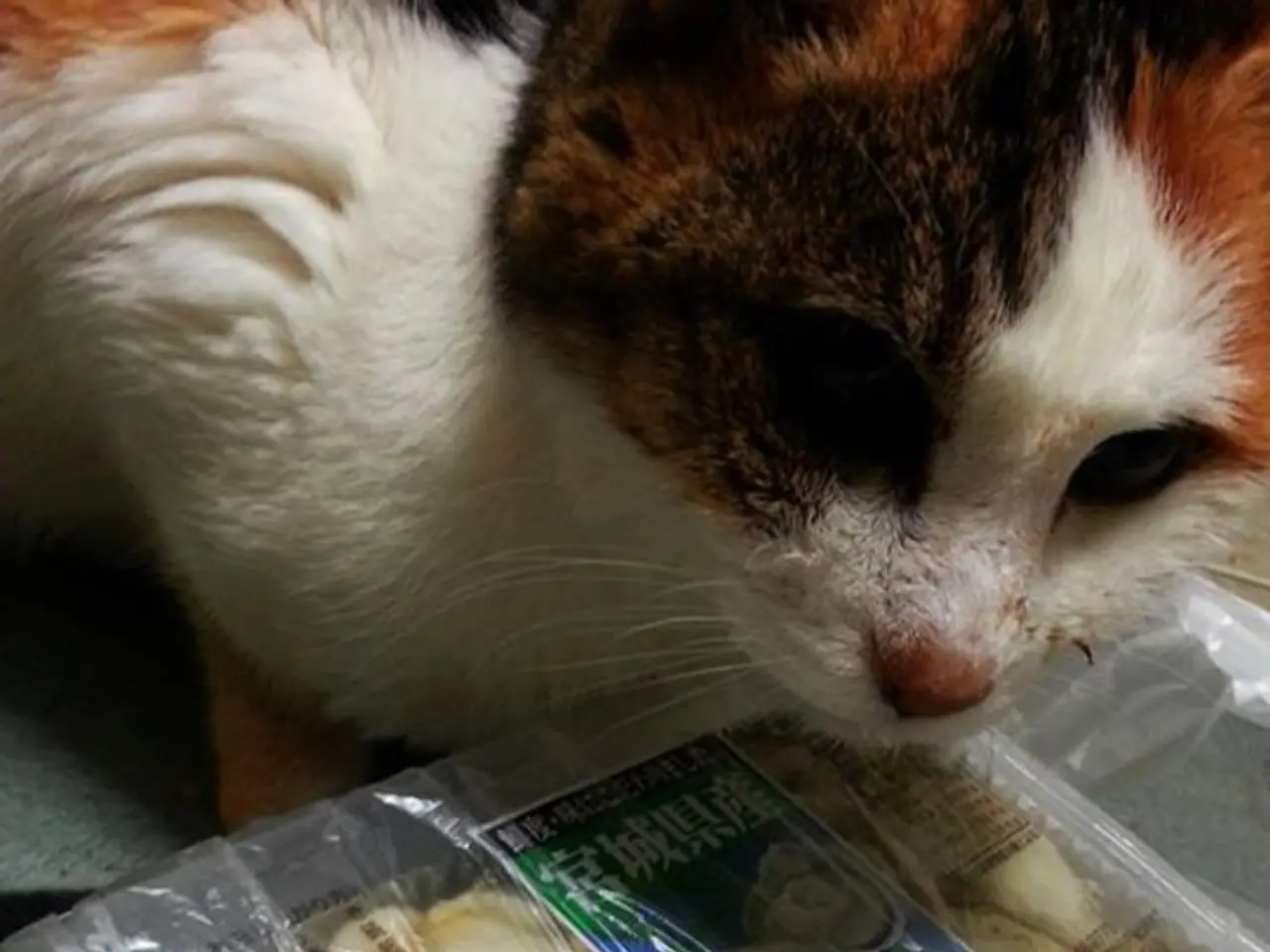Are Eggs Safe for Cats Consumption, and What About Kittens?
Cats and eggs may not seem like a natural combination, but with the right precautions, eggs can be a safe and nutritious treat for your feline friend. Here's what you need to know about feeding eggs to cats.
Firstly, it's essential to understand that too much egg can lead to overweight cats due to the excess fat. Eggs should not replace a cat's complete and balanced diet. Instead, they can be given as an occasional treat.
When it comes to feeding eggs to cats, cooked eggs are the safest option. Serve them boiled, scrambled, or cooked without added ingredients such as salt, spices, or oil. It's also crucial to remove the eggshell, as it can be a choking hazard or cause digestive upset.
Some cats may develop egg allergies, and symptoms can include itchy skin, ear infections, or gastrointestinal upset. If you notice any of these symptoms after introducing eggs into your cat's diet, it's recommended to stop giving them eggs and consult a vet.
It's also important to introduce eggs gradually to monitor for any allergic reactions. As some cats may develop allergies to egg whites or yolks, it's best to start with small amounts and observe your cat's reaction.
Eggs are a good source of protein, amino acids (especially taurine), vitamins, and minerals. They can support muscle maintenance, heart health, and immune function. However, they do not provide a balanced diet, so they should be given in moderation. The amount of eggs a cat should eat should not exceed 10% of their daily calories, equivalent to about 1 tablespoon of scrambled egg for an average adult cat.
Cats can eat eggshells in powdered form as a calcium supplement, but it's safer to stick with cat food formulated to include all the nutrients they need. Kittens, whose nutritional needs are more sensitive and immune systems are weaker, should not be offered eggs as a sole source of nutrition.
By following these guidelines, eggs can be a safe and nutritious treat for cats, supporting their health without risking bacterial contamination or dietary imbalance. However, if your cat shows signs of egg allergies, it's crucial to stop giving them eggs and consult a vet.
References: [1] ASPCA. (n.d.). Can cats eat eggs? Retrieved from https://www.aspca.org/pet-care/animal-poison-control/toxic-and-non-toxic-plants/can-cats-eat-eggs [2] VCA Hospitals. (n.d.). Can cats eat eggs? Retrieved from https://vcahospitals.com/know-your-pet/can-cats-eat-eggs [3] PetMD. (n.d.). Can cats eat eggs? Retrieved from https://www.petmd.com/cat/nutrition/can-cats-eat-eggs [4] Cornell Feline Health Center. (n.d.). Can cats eat raw eggs? Retrieved from https://www.vet.cornell.edu/departments-centers-and-institutes/cornell-feline-health-center/health-information/feline-health-topics/can-cats-eat-raw-eggs
Technology can play a role in monitoring a cat's health, providing lifestyle suggestions, and offering home-and-garden ideas for creating a safe environment for pets, such as setting up a cat-friendly garden with non-toxic plants.
Pets, like cats, can benefit from the inclusion of eggs in their diets when served cooked and in moderation to ensure the animal's weight remains balanced and avoid digestive issues.




